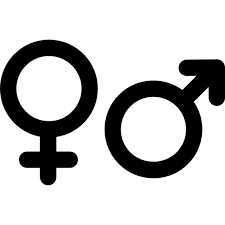Living without the label
Feminist beliefs without being a feminist

If you believe in something, fight for it. Social media constantly displays heated debates over political issues of the era and social disputes between those who seek to live in a country where their values are upheld. Views on everything from Donald Trump’s campaign to Black Lives Matter and racial violence flood newsfeeds and pages. Among these issues lies the feminist movement and supporters. However, very few men, and some women, are not quick to label themselves feminists even though their beliefs align with feminist goals.
Leading a feminist life by definition means that a person thinks that all genders should have equal political, social and economic rights, but today the multiple branches of feminism and types of gender equality stances cause mixed thoughts among those who attempt to label what they believe. Feminism, in the most stereotypical stance, is typically viewed as a group of radical women wanting to oppress men to get a portion of control in society and in the household. However, despite the stereotype, many people agree with the true meaning of feminism, but choose not to call themselves feminists due to the negative connotation brought on by radicalists.
According to data collected in a research survey of 100 Stockbridge students, approximately 68 percent of students agreed with or strongly agreed with feminist ideals such as equal pay and equal voting rights.
Despite this, only 49 percent of students would strongly agree or agree that they are feminists. Literally just over half of the respondents disagree or strongly disagree with identifying themselves as feminists. Of the 49 percent, approximately 65 percent were female and 34 were male.
Concurrently, Gallup polling through the last decade finds that only as many as 30 percent of Americans identify themselves as feminists. From 1991 to 2001, there was a five percent decrease in the amount of people considering themselves a feminist. These responses are likely brought upon by the reluctance to admit to an ideology that has been beaten and disgraced after years of radicalism, or the distorted perception of the true meaning of feminism.
People who do not claim to be feminists, yet hold feminists’ values often prominently say that they are not because of the insecurities brought upon by the word itself. In order to have profound acceptance of the word feminism, there needs to be an understanding of feminist beliefs. We need to diverge from of the connotation of what feminism is portrayed as, and what it truly is. We are a compassionate, more inclusive generation. We need to forget the past and construct a brighter future for ourselves and others. Feminist is not a taboo term. It should be celebrated by those who align with its purpose.







